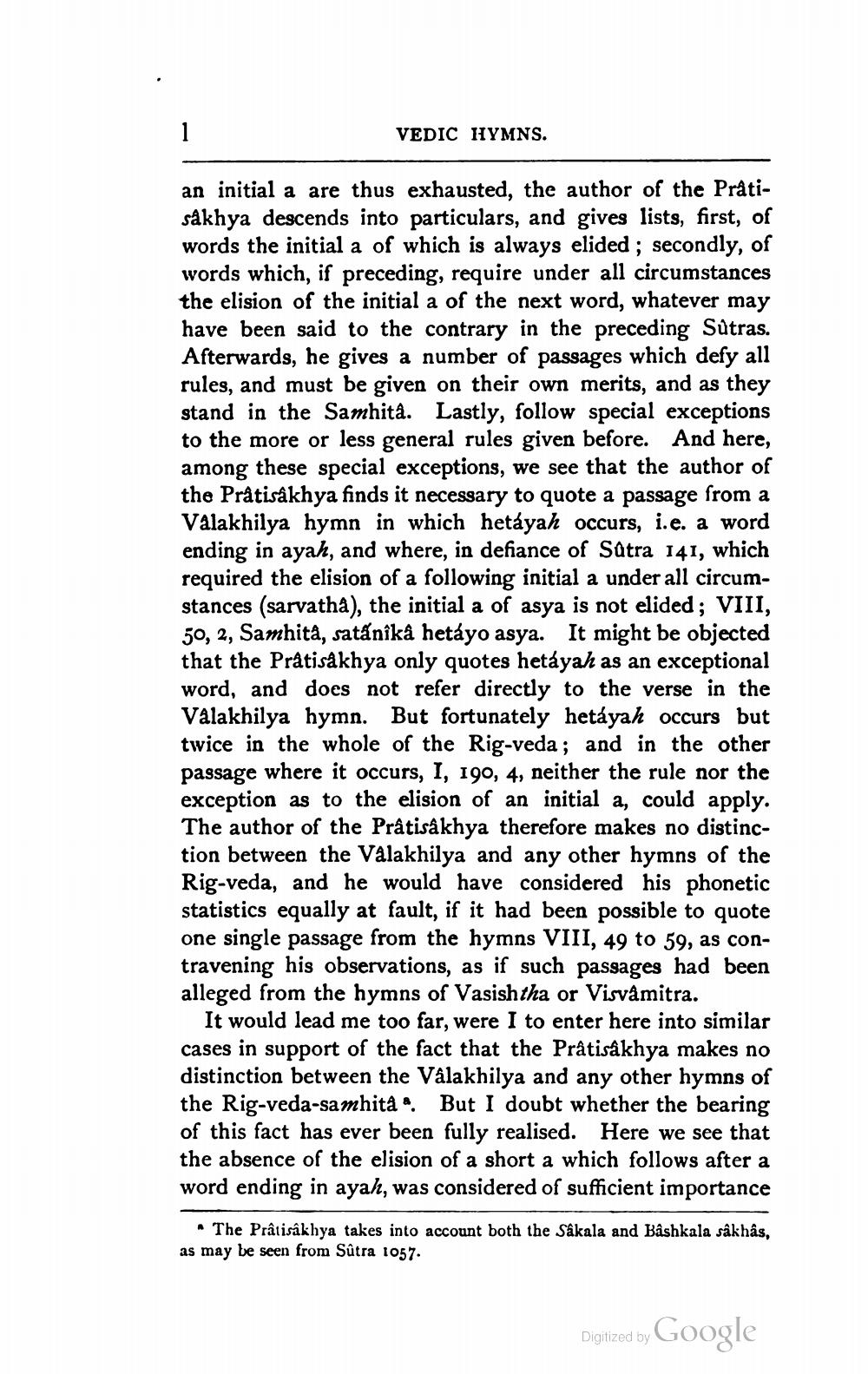________________
1
VEDIC HYMNS.
an initial a are thus exhausted, the author of the Prâtisåkhya descends into particulars, and gives lists, first, of words the initial a of which is always elided; secondly, of words which, if preceding, require under all circumstances the elision of the initial a of the next word, whatever may have been said to the contrary in the preceding Sutras. Afterwards, he gives a number of passages which defy all rules, and must be given on their own merits, and as they stand in the Samhita. Lastly, follow special exceptions to the more or less general rules given before. And here, among these special exceptions, we see that the author of the Prâtisâkhya finds it necessary to quote a passage from a Valakhilya hymn in which hetáyah occurs, i.e. a word ending in ayah, and where, in defiance of Sûtra 141, which required the elision of a following initial a under all circumstances (sarvathâ), the initial a of asya is not elided; VIII, 50, 2, Samhitâ, satánîkâ hetáyo asya. It might be objected that the Prâtisâkhya only quotes hetáyah as an exceptional word, and does not refer directly to the verse in the Valakhilya hymn. But fortunately hetáyah occurs but twice in the whole of the Rig-veda; and in the other passage where it occurs, I, 190, 4, neither the rule nor the exception as to the elision of an initial a, could apply. The author of the Prâtisâkhya therefore makes no distinction between the Vâlakhilya and any other hymns of the Rig-veda, and he would have considered his phonetic statistics equally at fault, if it had been possible to quote one single passage from the hymns VIII, 49 to 59, as contravening his observations, as if such passages had been alleged from the hymns of Vasishtha or Visvamitra.
It would lead me too far, were I to enter here into similar cases in support of the fact that the Prâtisâkhya makes no distinction between the Vâlakhilya and any other hymns of the Rig-veda-samhitâ a. But I doubt whether the bearing of this fact has ever been fully realised. Here we see that the absence of the elision of a short a which follows after a word ending in ayah, was considered of sufficient importance
The Prâtisâkhya takes into account both the Sâkala and Bâshkala sâkhâs, as may be seen from Sûtra 1057
Digitized by Google




